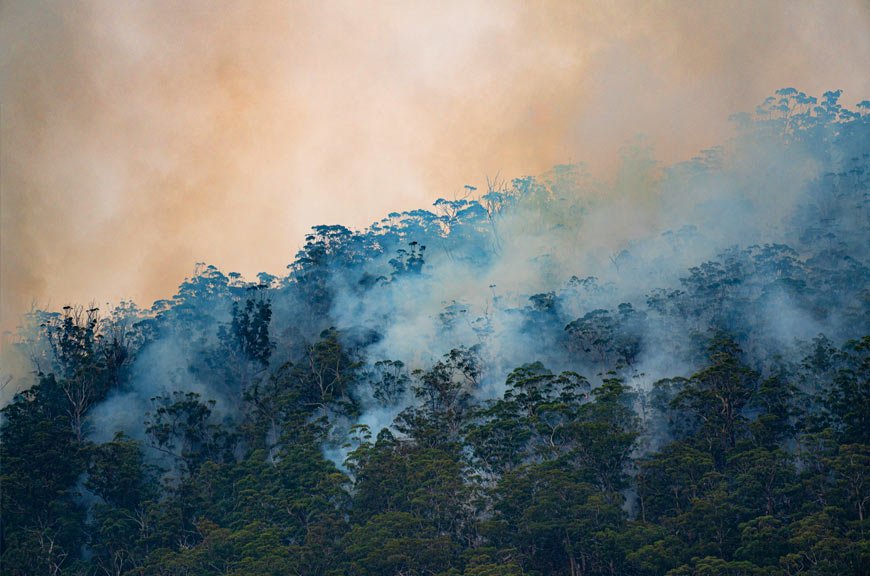The outcome of the 2021 climate summit in Glasgow
In the period from 31 October to 12 November 2021, the 26e Conference of Parties (COP) of the United Nations Framework Convention on Climate Change (UNFCC) took place in Glasgow. On the agenda was the further elaboration of the Paris Climate Agreement (2015).
I: climate targets
In the Paris Climate Agreement (2020), 195 states and the European Union committed themselves to reducing emissions. The goal is to limit global warming to 1.5°C. That is 0.5°C higher than the current increase. To achieve this, it is important to phase out the use of coal, reduce deforestation, increase the use of electric cars and encourage environmentally sustainable investments.
The second goal is to adapt to climate change in order to protect communities and natural habitats. This includes protecting and restoring ecosystems and building solid infrastructure to reduce the loss of homes, communities and human lives.
The third goal concerns the financing of climate adaptation. To meet the first two goals, it is necessary to have sufficient money available. Not only international financial institutions, but also the public and private sectors are considered. The goal was 100 billion per year by 2020.
The fourth goal is to strengthen cooperation between the parties to the UNFCCC. The goal at COP26 was to finalise the “Paris Rulebook”, making the Paris Climate Agreement operational. COP26 also aimed at accelerating and improving cooperation between governments, businesses and society.
II: Result
The outcome of the Glasgow Climate Summit is laid down in the UN Glasgow Climate Pact. This pact consists of several elements.
- “The Global Forest Finance Pledge”: 12 billion has been allocated to finance the protection, restoration and sustainable management of forests and rainforests between 2021 and 2025. The underlying aim is to halt deforestation no later than 2030.
- “COP26 Congo Basin Joint Donor Statement”: declaration by a number of States/organisations regarding the protection and sustainable management of the Congo Basin forests. States recognise that effective, efficient and accessible forms of assistance are needed to help States in this region to implement development strategies to conserve the forests. The States will initially make at least 1.5 billion available to the region between 2021 and 2025. The Netherlands signed the declaration.
- “IPLC Forest Tenure Joint Donor Statement”: statement by a number of States / organisations regarding increased support for the rights of indigenous peoples and communities and “Forest Guardianship”. Parties acknowledge the importance of Guardianship in protecting tropical rainforest and maintaining vital ecosystems. They also recognise the land and resource rights of indigenous peoples under applicable national law, the UN Declaration on the Rights of Indigenous Peoples and other instruments of international law. Parties will make 1.7 billion available for the period 2021-2025. The Netherlands signed the declaration.
- “MDB Joint Nature Statement”: statement to the Multilateral Development Banks on Nature, People and Planet.
- “Agricultural commodity companies corporate statement of purpose”: a signed statement by various CAOs, committing to the climate goals on behalf of their companies. In the comments, they indicate why they have signed and how they expect to make progress.
- “Forests, Agriculture and Commodity Trade”: A “Roadmap for Action” in the form of a Joint Statement by a number of States. The aim is to promote sustainable development and sustainable trade of agricultural commodities on the one hand and to protect and manage essential ecosystems on the other. The States have set out a roadmap on four key issues: (a) trade and market development; (b) smallholder support; (c) traceability and transparency and (d) research, development and innovation. States commit to maintaining an open and inclusive dialogue based on respect for national interests, circumstances and capacities. In doing so, they commit to work together to share experiences, find common ground, support implementation and encourage further developments within the framework of the ambitions shared by States.
- “COP26 World Leaders Summit-Statement on the Breakthrough Agenda: States have agreed to accelerate the development and use of clean technologies and sustainable solutions. These solutions and technologies must be affordable and accessible to all.
- “Political Declaration on the Just Energy Transition in South Africa: South Africa, the United States, England, France, Germany and the European Union signed this political declaration.
- “Green Grids Initiative” – “One Sun Declaration”: declaration by some states that the use of solar, wind and water energy is essential and sufficient for the development of clean energy on earth.
- “MDB Joint Climate Statement”: statement by multilateral development banks on their role in adapting to climate change.
- “Mission Innovation-Breakthrough Energy Collaboration Agreement”: cooperation of MI and BE (private) with the European Commission, European Investment Bank, U.S. Department of Energy and England (public).
- “Statement on international public support for the clean energy transition”: declaration by a number of States concerning the transition to clean energy. The parties confirm, among other things, the “do no significant harm” principle, as laid down in the climate objectives of the Paris Agreement. The Netherlands signed the declaration.
- “Global Coal to Clean Power Transition Statement”: a statement by some States that energy in the form of coal is the main cause of global warming. States recognise the urgency of scaling up and accelerating the energy transition. Parties commit to an accelerated and improved energy transition. The Netherlands has signed the declaration.
- “Focus of Energy Transition Council (ETC): ETC sets out its goal to make clean energy the most affordable and reliable option for States, in order to accelerate the energy transition in a way that makes clean energy available to all.
- “Supporting the conditions for a Just transition internationally: States underline the importance of supporting workers whose jobs are changed due to the energy transition, helping and promoting social dialogue and stakeholder management and an economic strategy for a net zero future. The Netherlands has signed this declaration.
- “Breakthrough Agenda – Launching an Annual Global Checkpoint Process in 2022″: The “Breakthrough Agenda” commits States to work together to achieve clean technologies and sustainable, reliable, affordable solutions for every emitting sector worldwide by 2030.
- “International Aviation Climate Ambition Coalition: States recognise the major contribution of aviation to climate change through C02 emissions. States recognise the need for the development of innovative and sustainable technologies.
- “Adaptation Research Alliance (ARA) – Joint Statement on Launch: Declaration by 100 organisations from around the world to form a coalition to contribute to climate adaptation.
The above documents constitute a long list of results. In principle, the statements of States do not bind them. In summary, the “breakthrough” documents are important. States declare their willingness to work towards accelerating and improving the energy transition. (Some) States commit to work together to achieve clean technologies and sustainable, reliable, affordable solutions for every emitting sector worldwide by 2030.
Are you looking for legal advice on sustainability law? Then please contact the lawyers at Law & More who specialise in sustainability.





